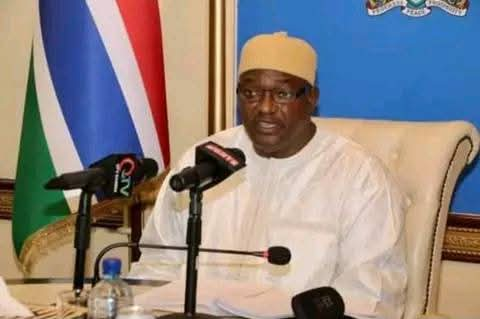
The Government of The Gambia acknowledges the recently published Afrobarometer survey which, amongst other things, indicates that three-fourths (77%) of Gambians say the country is heading in “the wrong direction”. The government recognizes the value of perception surveys as a tool for understanding public perceptions. It is however important for the public to note that these types of surveys represent subjective opinions and/or experiences rather than comprehensive facts or an assessment of the impact of ongoing governmental initiatives.
In particular, Afrobarometer surveys are perception surveys and perceptions can be shaped by individual perspectives and misinformation. This may not reflect actual outcomes or facts. Methodologically, they can be lacking empirical rigour with potential biases in the framing of questions, leading to skewed responses and the eventual interpretation of the data. The findings of surveys may be scientific, but context matters and perceptions can vary greatly across different cultural or situational contexts, making it difficult to generalize findings across diverse groups and circumstances.
The existing evidence, supported by data from donor partners and results from the NDP delivery evaluations, points to significant progress in every area of Gambia’s public policy, including infrastructural development, economic performance, education and healthcare delivery, electricity expansion, water supply to social interventions.
Over the past years, significant progress has been made across various sectors to create a Gambia that is resilient, inclusive, and economically stable. In infrastructure, the government has undertaken one of the most ambitious road construction projects in our history, connecting rural and urban areas to facilitate trade, improve transportation, and spur economic activity. This has included the construction and refurbishment of nearly 1,000 kilometres of roads nationwide, ensuring accessibility for all Gambians.
In health, hospitals and regional health centres across the country have been upgraded to expand healthcare coverage and enhance service delivery. These improvements demonstrate the government’s commitment to prioritizing the well-being of Gambians, even as it invests in health sector reform to meet growing demands.
Youth development and employment have also been central to President Barrow’s agenda. Through the establishment of new internship programs, an employability centre at the University of The Gambia, and targeted training initiatives, the government has created avenues for young people to thrive. Recognizing the critical role of the youth in nation building, the administration continues to roll out programs aimed at providing sustainable livelihoods and reducing unemployment.
A recent IMF review under the Extended Credit Facility commended the Barrow administration for significant achievements, particularly in strengthening economic recovery. The GDP is anticipated to reach 5.8% in 2024, driven by broad based economic activities across various sectors. The report also highlighted increased tourism activities, signaling a recovery from the COVID 19 pandemic, alongside a reduction in inflation from a peak of 18.5% in September 2023 to 10% in October 2024. Additionally, the new foreign exchange policy was recognised as a significant step towards economic growth, with international reserves exceeding their targets by the end of September 2024.
A recent UCTAD report published in July 2024 highlights significant progress in The Gambia’s investment landscape, which has transformed dramatically since 2017. FDI inflows have skyrocketed, rising from a modest $18 million to an impressive $249 million in 2021. This nearly 14-fold increase is attributed to growing investor interest in diverse sectors such as manufacturing, agriculture, and real estate. The momentum continued in 2022, with FDI levels remaining robust at $236 million. This surge is not just about numbers; it signifies a burgeoning confidence in The Gambia’s economic potential.
While challenges related to economic hardships and security have been highlighted in the survey, the government has been proactive in implementing solutions. Recent reforms in security services and increased resource allocation have fortified national safety measures, and the country remains one of the most stable, secure and peaceful in the region.
The survey rightly acknowledges the substantial progress made in upholding democratic values. Under President Barrow’s leadership, The Gambia has embraced a culture of openness and free speech, ensuring citizens’ voices are heard.
While the government recognizes that global economic challenges have affected the cost of living, it remains steadfast in pursuing policies and projects that will ease these burdens. This is evident in the many interventions through subventions to prop up the energy and agricultural sectors and food supply chains.
President Barrow’s administration values the feedback of Gambians and views surveys like this as an opportunity to strengthen its resolve in serving the nation. Since inception of this administration, the Government stands ready and committed to protect the rights of individuals and their perception as enshrined in the Constitution of The Gambia, while encouraging all Gambians to make an independent analysis of such surveys through the manifestation of the country’s development strides under the Barrow administration over the past decade. If truly, the country was heading in the wrong direction, recent data would not indicate that The Gambia’s progress in electricity and water supply, access to health care and education services, and investments in agriculture and infrastructure far surpasses the cumulative interventions and investments of the previous governments.
MINISTRY OF INFORMATION, MEDIA AND BROADCASTING SERVICES.




